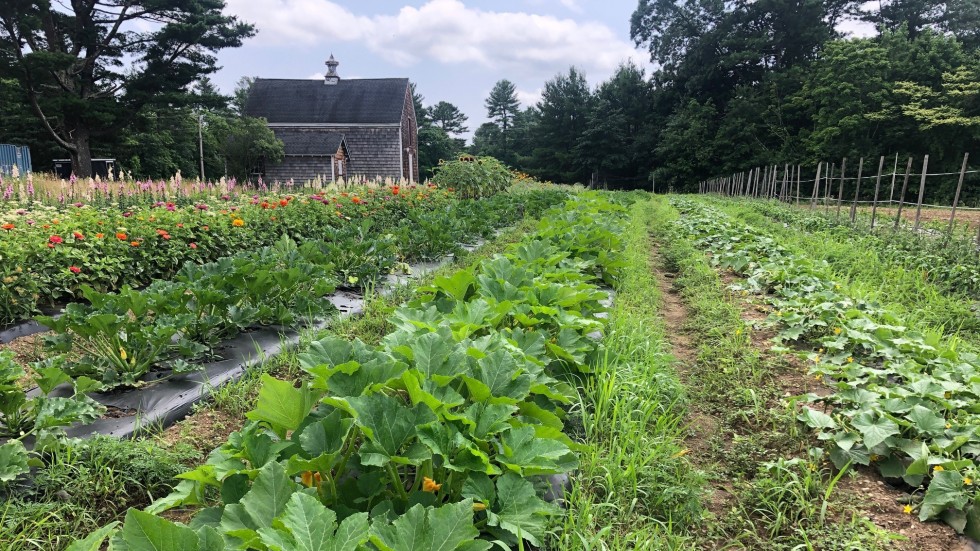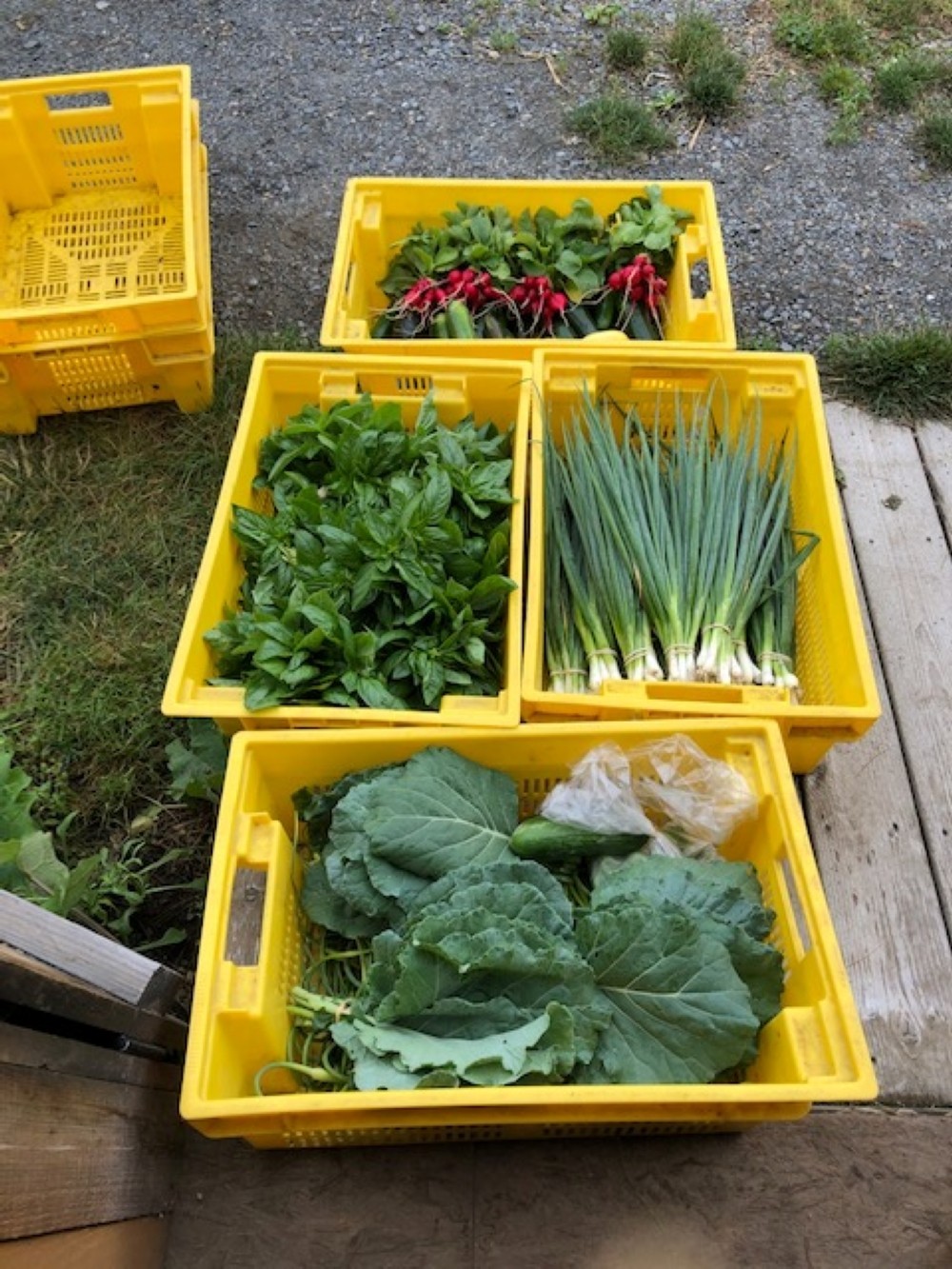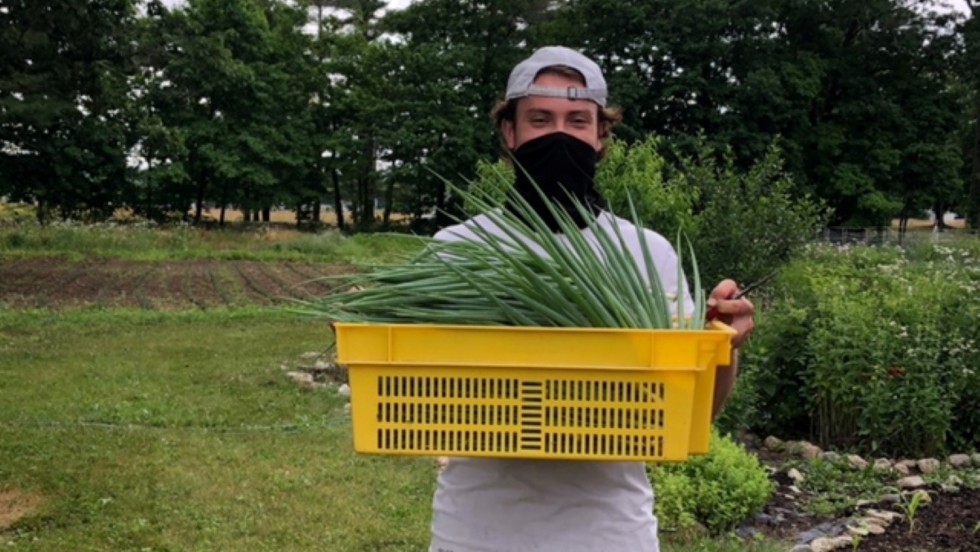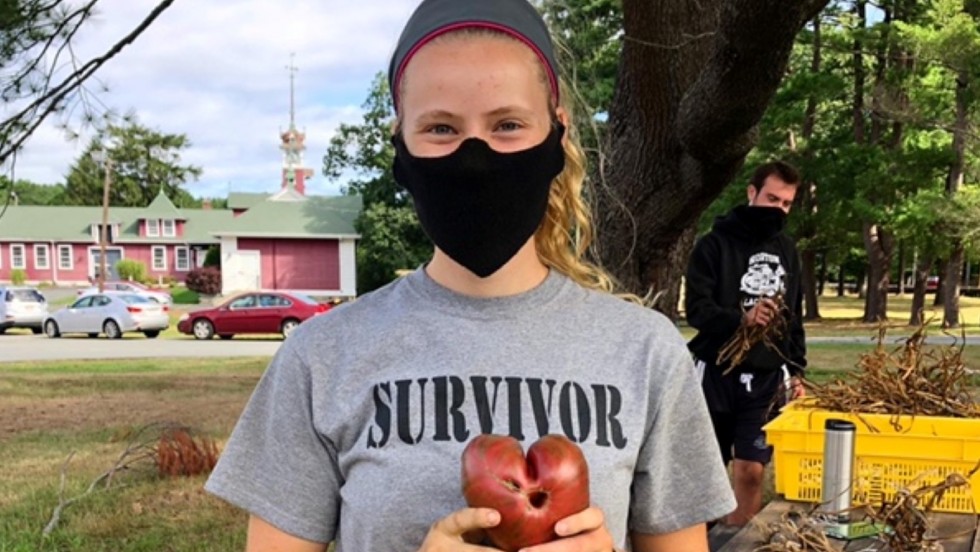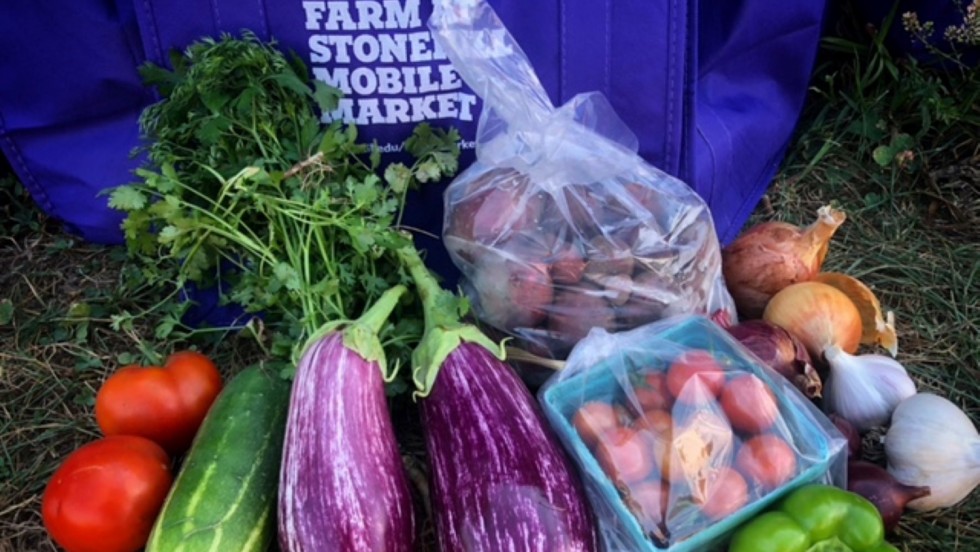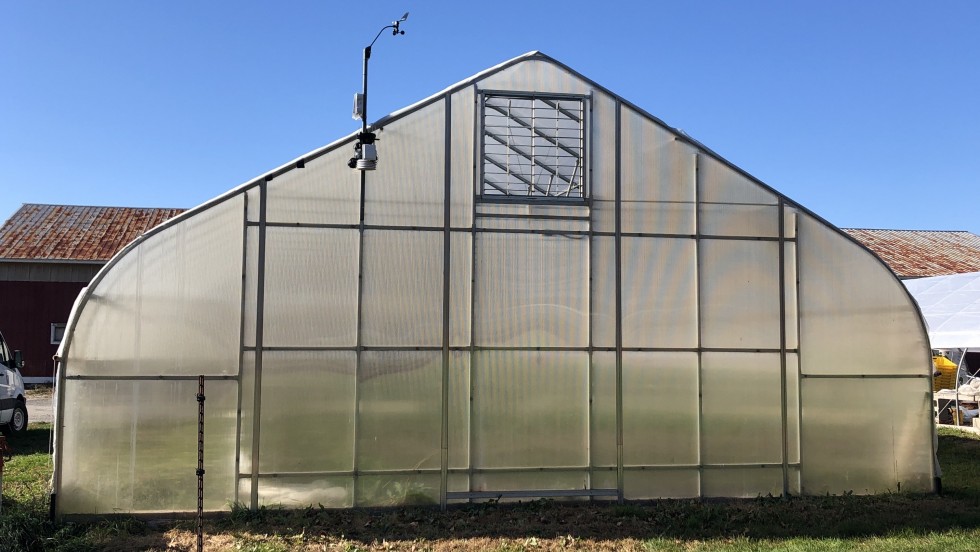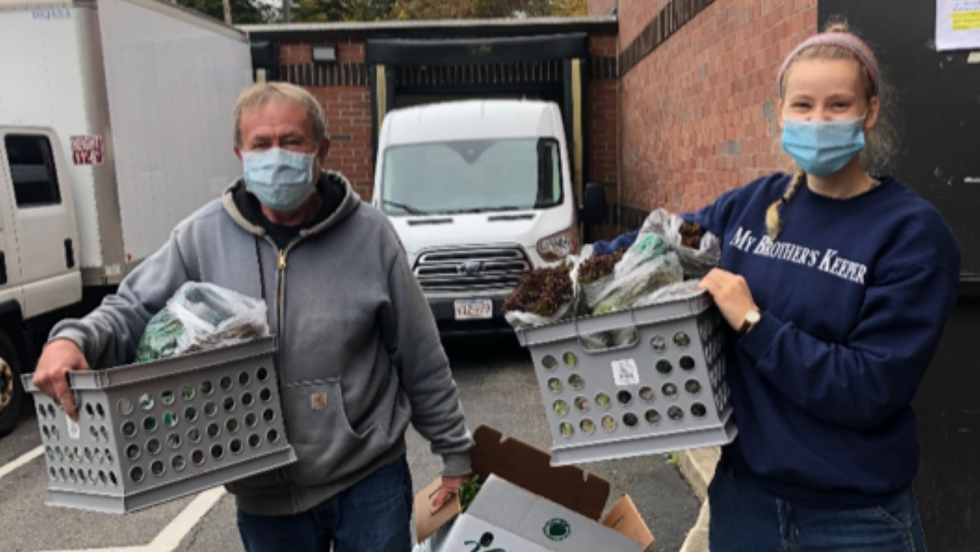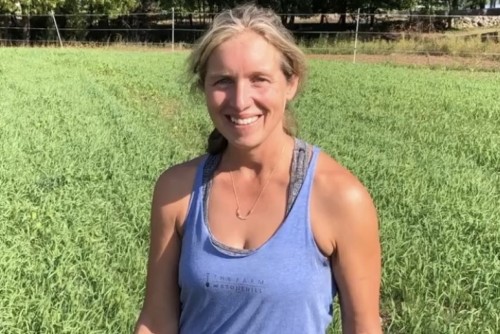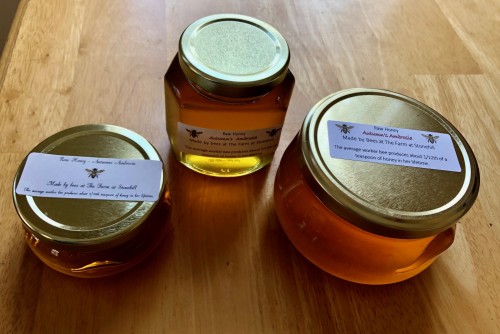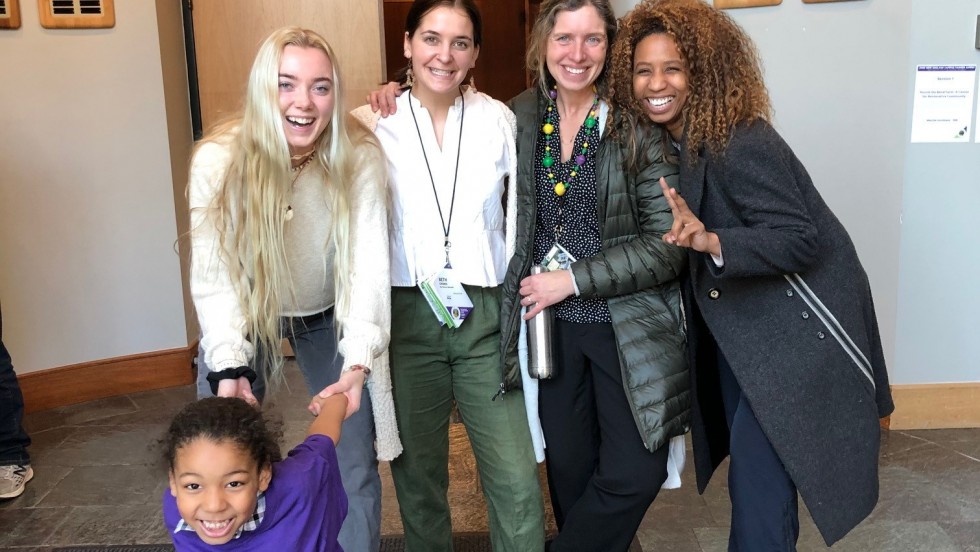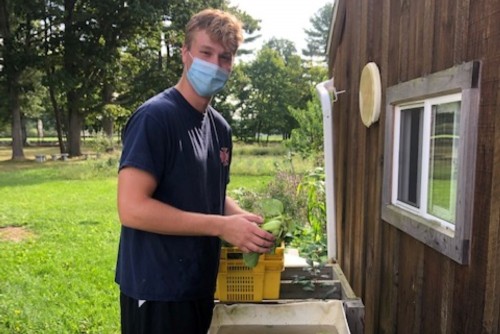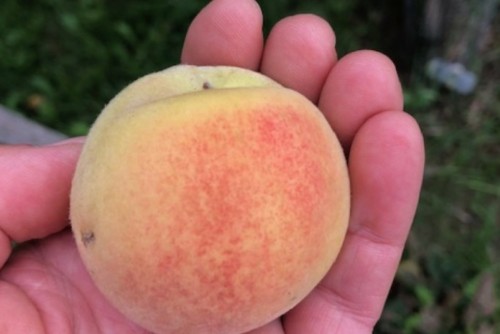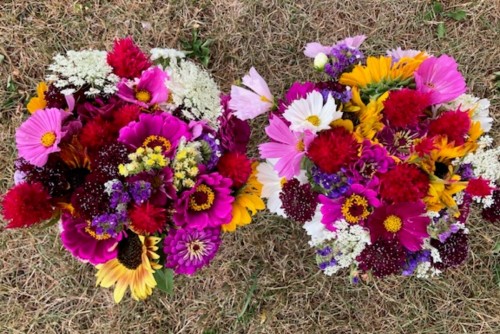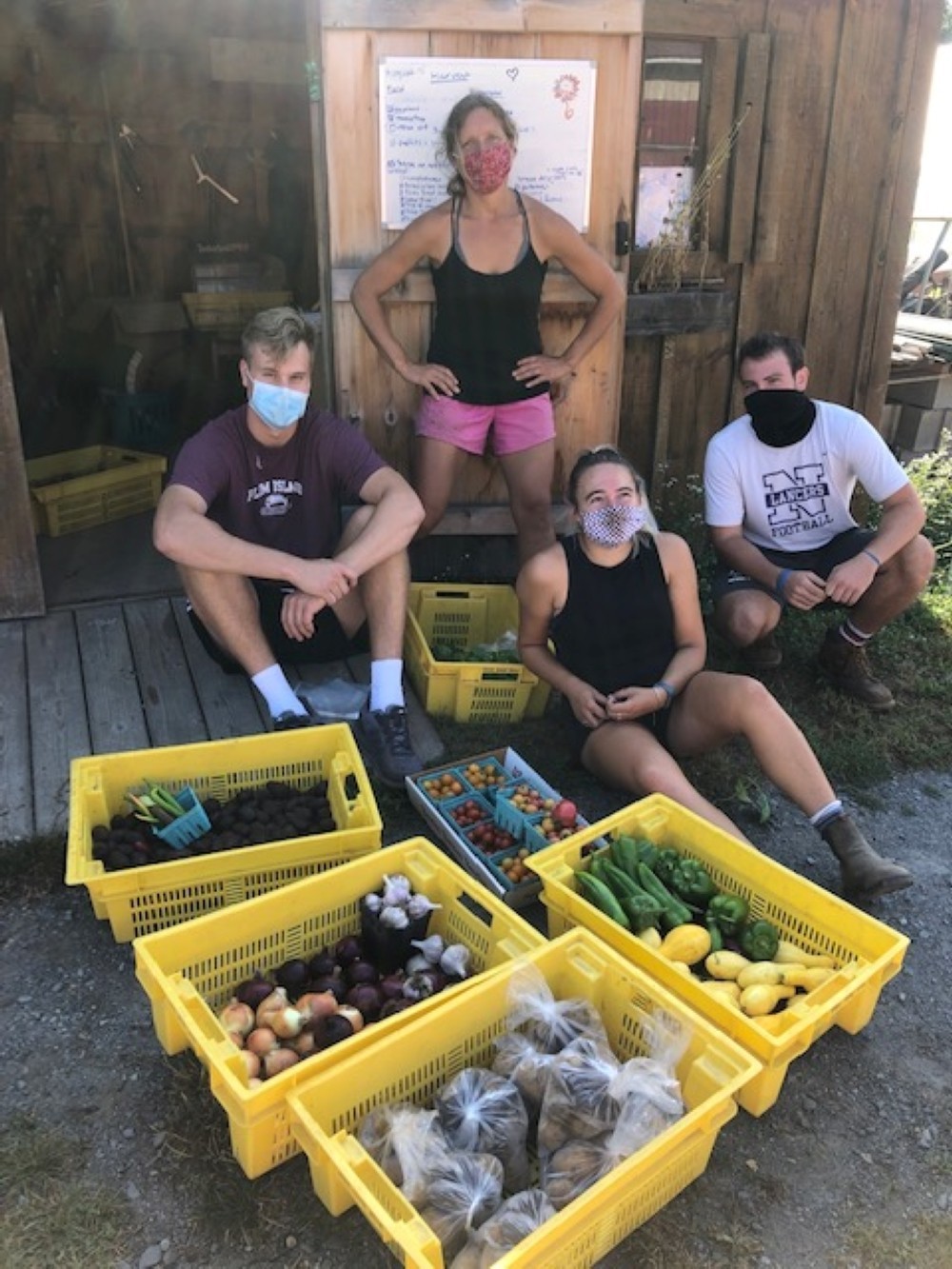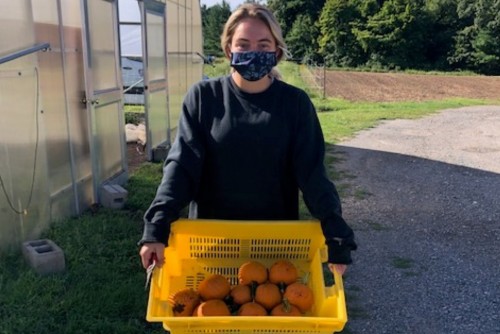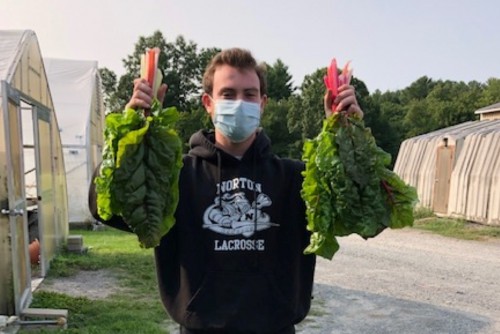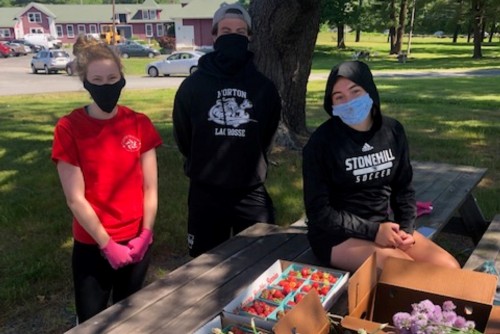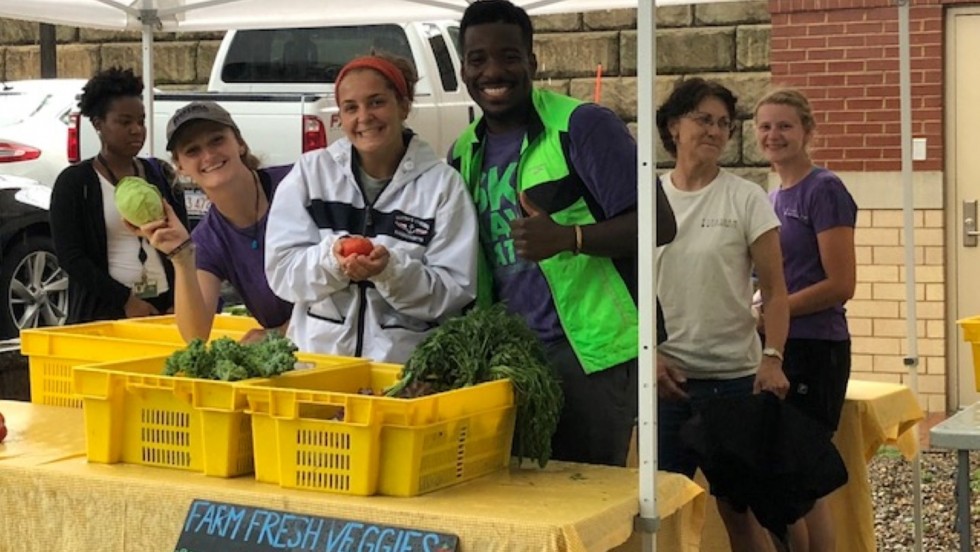On February 22, 2020, just before COVID-19 made its appearance, we partnered with Farm to Institution New England (FINE) to host the second New England Campus Farmer Summit in the Martin Institute and the Shields Science Center.
The day of the summit dawned sunny and bright with temperatures destined to climb into the high 40s! We were glad to know that our attendees – joining us from Virginia, Massachusetts, Washington D.C., Connecticut, Pennsylvania, New York, Maine, Vermont, New Hampshire and Rhode Island – would have good traveling conditions. And sure enough 165 campus farm enthusiasts made the trip to Stonehill to spend the day together. It is a magical thing having the opportunity to create a space where people with similar challenges and shared joys can come together.
• Student Panel: Student farmers, led by our Assistant Farm Manager, Celia Dolan ’19, spoke from their hearts about how their campus farming experiences have nourished them physically, mentally and socially. It was clear that eating becomes personal – joyful, painful, beautiful and meaningful – when you experience growing something from seed to table.
• Keynote Speaker: Professor of Urban and Environmental Policy at Tufts University, Julian Agyeman is the originator of the concept of just sustainabilities: “the intentional integration of social justice and environmental sustainability, defined as: the need to ensure a better quality of life for all, now, and into the future, in a just and equitable manner, whilst living within the limits of supporting ecosystems.”
